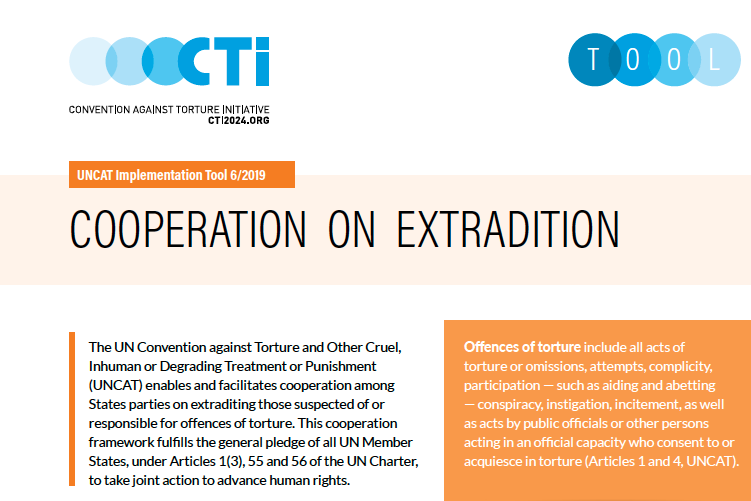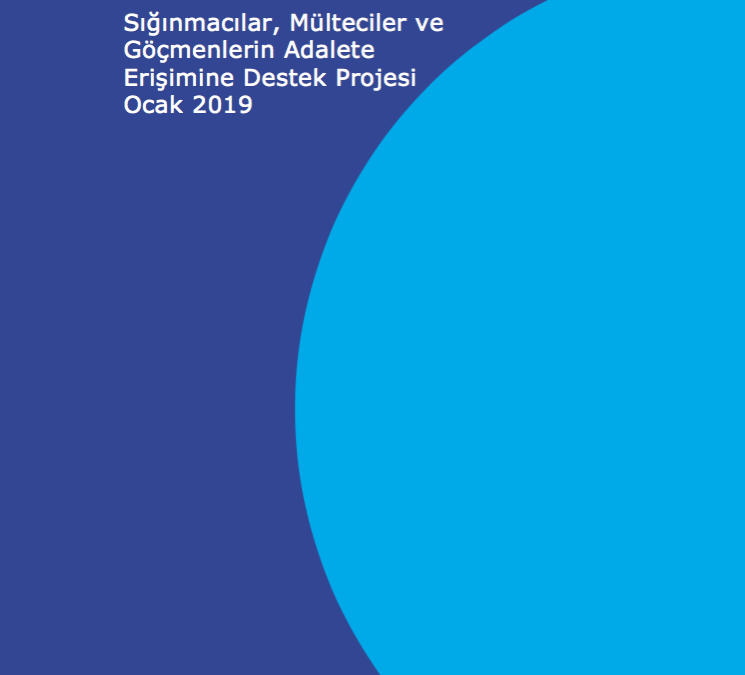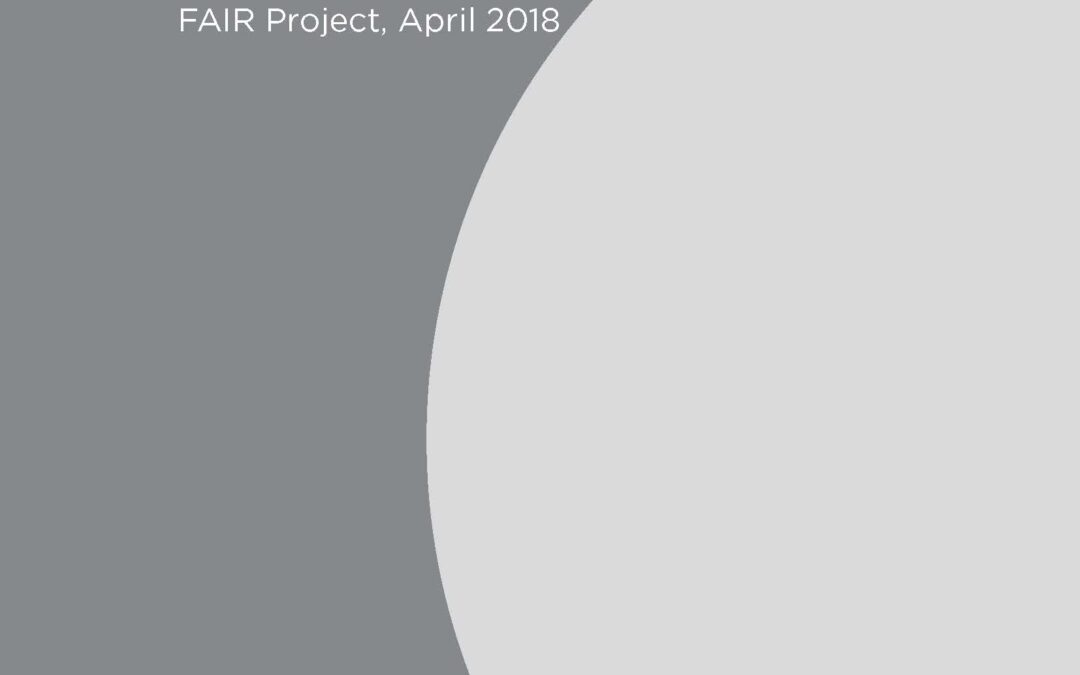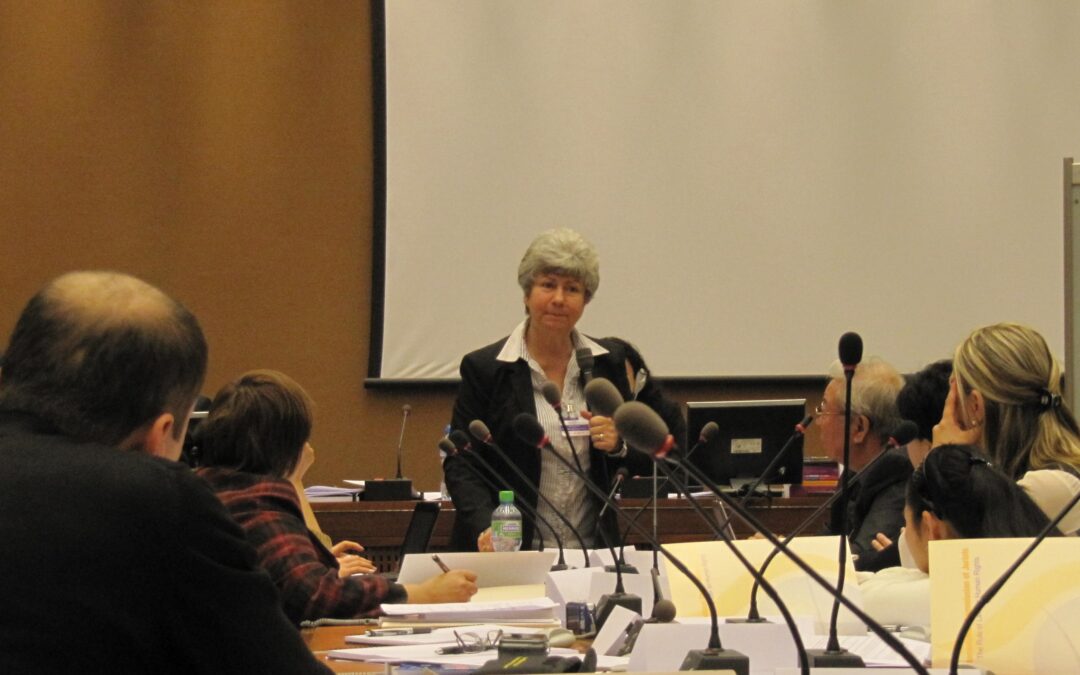
Jul 19, 2019
On 17 July 2019, the Convention Against Torture Initiative (CTI) released the 6th tool in their series of UNCAT implementation tools on “Cooperation on Extradition”. The ICJ developed the tool for the CTI.
This latest tool focuses on the extradition framework established in the UN Convention against Torture and Other Cruel, Inhuman or Degrading Treatment or Punishment (UNCAT), which enables and facilitates cooperation among States parties on extraditing those suspected of or responsible for offences of torture.
The tool sets out in an understandable format the basic elements of UNCAT’s extradition framework, explaining how it operates in practice, with the aim of bringing those suspected or convicted of torture to justice, thus ending impunity for torture and other ill-treatment. It provides 32 international, regional and national examples of how the framework can operate in practice.
You can read the tool here: Universal-CTI-Cooperation-Advocacy-ENG

Jan 31, 2019
Today the ICJ has published four training modules on Migration and Asylum Law. The modules are based on the trainings and training materials for Turkish lawyers provided on international human rights law relating to migration and asylum as part of the project Fostering Access to Rights for Migrants, Refugees and Asylum-Seekers in Turkey. Each module is covering different topic:
The modules can be found and downloaded in Turkish by clicking on the module name above.
The project “Fostering Access to Rights for Migrants, Refugees and Asylum-Seekers in Turkey” is funded by the European Instrument for Democracy and Human Rights (EIDHR) of the European Union.

May 20, 2018
The ICJ has published today a set of training materials on access to justice for migrant children that were developed as part of the FAIR (Fostering Access to Immigrant children’s Rights) project.
These training modules should help lawyers when representing migrant children to increase their knowledge of the rights of the migrant children, to increase their understanding of the use of international redress mechanisms for violations of human rights of migrant children and give some advice on how to effectively communicate with child clients.
The materials include the following training modules:
0. Guiding principles and definitions,
I. Access to fair procedures including the right to be heard and to participate in proceedings,
II. Access to justice in detention,
III. Access to justice for economic, social and cultural rights,
IV. Access to justice in the protection of their right to private and family life,
V. Redress through international human rights bodies and mechanisms,
VI. Practical handbook for lawyers when representing a child.
These materials have been used in national trainings for lawyers organised by the ICJ-EI in Spain, Italy, Greece, Malta, Bulgaria, Ireland and Germany and include also practical training tools, such as case studies and warm-up questionnaires to guide possible future trainings.
They will be translated into five other languages: Spanish, Greek, Bulgarian, German and Italian.
You can download the materials here:
In English
Europe-FAIR module 0-Training modules-2018-ENG
Europe-FAIR module 1-Training modules-2018-ENG
Europe-FAIR module 2-Training modules-2018-ENG
Europe-FAIR module 3-Training modules-2018-ENG
Europe-FAIR module 4-Training modules-2018-ENG
Europe-FAIR module 5-Training modules-2018-ENG
Europe-FAIR module 6-Training modules-2018-ENG
In Bulgarian
Europe-FAIR module 0-Training modules-2018-BUL
Europe-FAIR module 1-Training modules-2018-BUL
Europe-FAIR module 2-Training modules-2018-BUL
Europe-FAIR module 3-Training modules-2018-BUL
Europe-FAIR module 4-Training modules-2018-BUL
Europe-FAIR module 5-Training modules-2018-BUL
Europe-FAIR module 6-Training modules-2018-BUL
In German
Europe-FAIR module 0-Training modules-2018-GER
Europe-FAIR module 1-Training modules-2018-GER
Europe-FAIR module 2-Training modules-2018-GER
Europe-FAIR module 3-Training modules-2018-GER
Europe-FAIR module 4-Training modules-2018-GER
Europe-FAIR module 5-Training modules-2018-GER
Europe-FAIR module 6-Training modules-2018-GER
In Greek
Europe-FAIR module 0-Training modules-2018-GRE
Europe-FAIR module 1-Training modules-2018-GRE
Europe-FAIR module 2-Training modules-2018-GRE
Europe-FAIR module 3-Training modules-2018-GRE
Europe-FAIR module 4-Training modules-2018-GRE
Europe-FAIR module 5-Training modules-2018-GRE
Europe-FAIR module 6-Training modules-2018-GRE
In Italian
Europe-FAIR module 0-Training modules-2018-ITA
Europe-FAIR module 1-Training modules-2018-ITA
Europe-FAIR module 2-Training modules-2018-ITA
Europe-FAIR module 3-Training modules-2018-ITA
Europe-FAIR module 4-Training modules-2018-ITA
Europe-FAIR module 5-Training modules-2018-ITA
Europe-FAIR module 6-Training modules-2018-ITA
In Spanish
Download here

Jan 10, 2017
The objective of the programme is to enhance knowledge of international human rights law of lawyers practicing in the area of criminal justice, and to equip them to apply this knowledge in their practice in national courts and to make effective use of international human rights mechanisms.
The training programme will address core principles of international human rights law as well as international human rights standards and jurisprudence on the right to fair trial; the right to liberty; protection against torture and ill-treatment and other rights of particular relevance to criminal justice.
It will provide guidance on how to bring proceedings before international human rights mechanisms, with a particular focus on the UN Human Rights Committee and the UN Committee Against Torture.
Central Asia-Geneva training application-Training modules-2017-ENG (full text in English, PDF)
Central Asia-Geneva Application Form-Training modules-2017-RUS (Application form in Russian)
Central Asia-Geneva Application Form-Training modules-2017-RUS (Application form in Russian, PDF)

Sep 6, 2016
This publication released today by the ICJ summarizes and explains the rights of people in Africa who are suspected of or charged with a criminal offence from the time of arrest until trial, as set out in standards of the African Union and United Nations (UN).
The idea for the publication was first discussed at a regional symposium of judges that was convened by the ICJ, working together with the Southern Africa Chief Justice Forum and the Africa Judges and Jurists in Pretoria in September 2014.
The theme was carried forward to the Southern Africa Chief Justice Forum held in Victoria Falls in August 2015. The Guide builds on these two initiatives.
It is a tool for lawyers, judges, and law-makers seeking to ensure that criminal laws and practices, from arrest until trial, comply with a State’s obligations under international human rights law.
In particular, these laws and practices should be consistent with the standards set by the African Union and the United Nations.
The Guide may also be useful to people observing trials with a view to assessing their fairness in the light of international standards, or others seeking to evaluate the extent to which the country’s criminal procedure codes and practices adhere to international standards.
The Guide may also be used as an educational and training tool. Its 11 chapters each set out one or more rights relevant to the various stages and proceedings in a criminal case, indicating which African and UN standards guarantee the rights and illustrating how the rights and standards have been construed and interpreted by African and universal human rights bodies.
africa-pretrial-rights-publications-reports-thematic-reports-2016-eng (full publication, in PDF)









